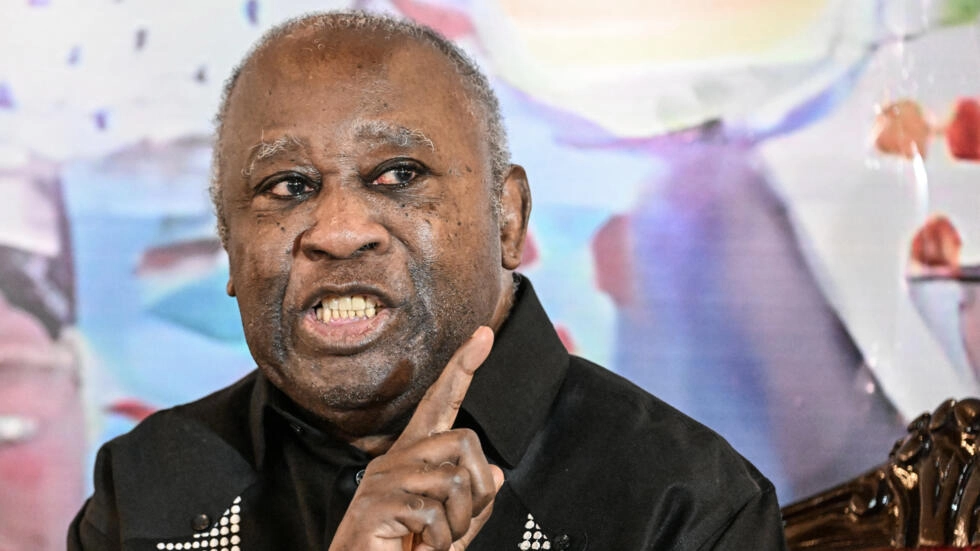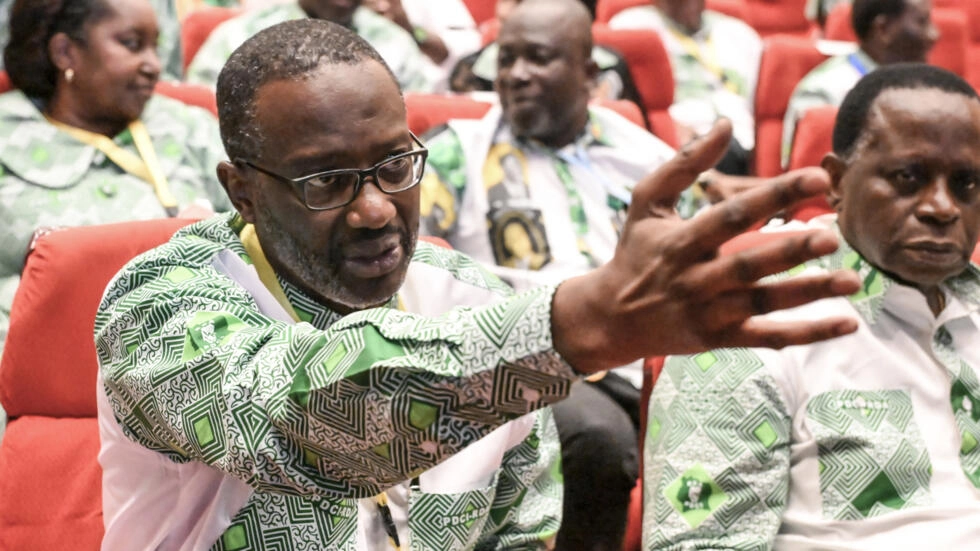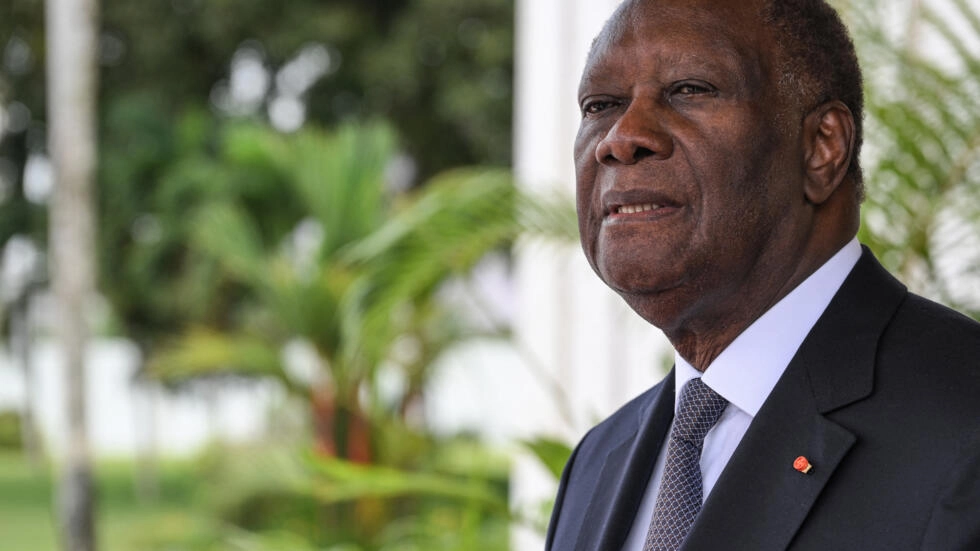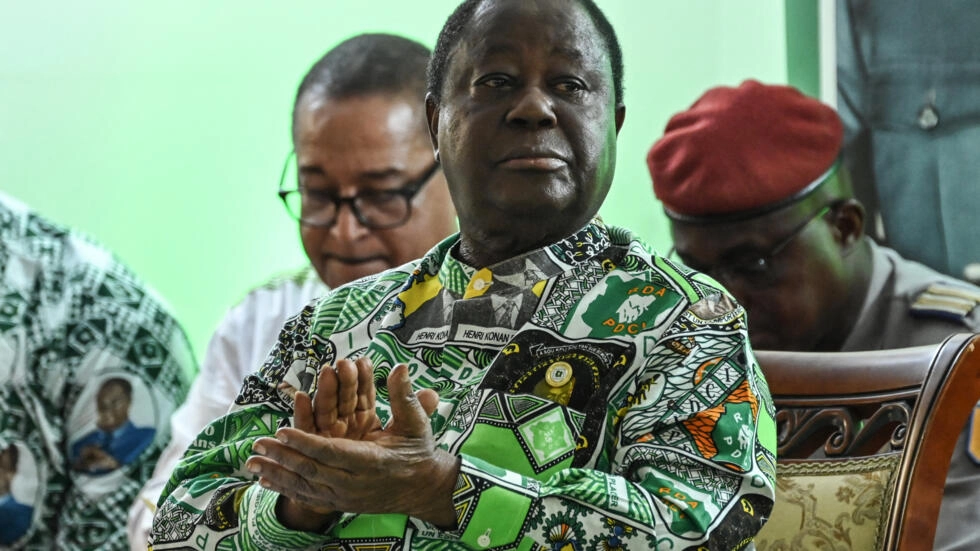This article is more than
5 year oldLaurent Gbagbo case: Ivory Coast leader's acquittal rattles ICC foundations
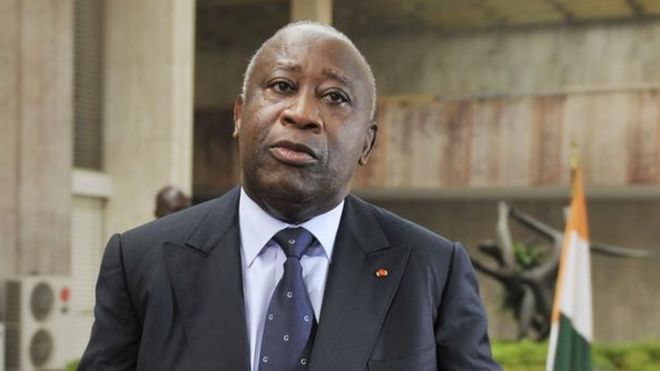
For an institution dreamt up to hold the world's most powerful to account, the former Ivorian president's extradition to The Hague was a signal the ICC was up to the challenge.
Great expectations make the failure even more bitter for a prosecution still reeling from the dramatic collapse of the case of Jean-Pierre Bemba, the former DR Congo vice-president whose conviction for war crimes and crimes against humanity was overturned.
What does the Laurent Gbagbo case tell us about the state of the ICC and its ability to operate as the global instrument of international justice?
First things first, what went wrong?
"Put simply, it appears that the judges are not convinced that the prosecution's evidence is sufficient to warrant the trial continuing," Mark Kersten, author of Justice in Conflict, explained ahead of the ruling.
- What is the International Criminal Court?
- Laurent Gbagbo: From democrat to autocrat
- ICC apology after witnesses named
"The Trial Chamber asked the prosecution for a 'mid-trial brief' last year," he says.
"In doing so, they cast a pall of doubt on the ability of the prosecution to prove Mr Gbagbo and [his close ally Charles] Blé Goudé's guilt beyond a reasonable doubt, as well as on the narrative put forward by the prosecution regarding their alleged common plan to commit crimes."
Why is this different?
"Whenever a case involving mass atrocities essentially collapses at the ICC," Mr Kersten points out, "it does damage to the perception of the court as a credible and effective institution of international justice. The ICC needs wins and it's racking up losses."

This matters to those who have invested materially (states) and emotionally (victims) in the ICC's fundamental reason for being - a court of last resort, prepared to act when countries are unwilling or unable to bring the prosecutions themselves.
These prosecutions are expensive. The evidence needs to be watertight. Otherwise it plays into the critics' hands.
"This is a mechanism a lot of countries have signed up to," Janet Anderson, who writes for the Justice Tribune, tells me.
"Those who haven't signed up are so vehemently opposed, if the ICC is seen as incompetent in some way, it plays into the bigger narrative of whether it should be up to individual nation states to do this work rather than have the international community involved and concerned."
Remind us, what happened?
About 3,000 people died in post-election violence following Laurent Gbagbo's defiant decision to cling to power in 2010 after his rival Alassane Ouattara won.
The Ivory Coast was not a member of the ICC but accepted jurisdiction to cover the period in question.
Laurent Gbagbo was held under house arrest for seven months before his unceremonious extradition to the drizzly, grey capital of international justice - a fact his fresh-off-the-hanger ICC-supplied suit could not disguise.
I remember the ageing politician's apparent disorientation during his first court appearance in The Hague. Blinking behind his spectacles, under the harsh lights, seemingly confused by the gazes from a packed public gallery.
At the time, Elise Keppler from Human Rights Watch (HRW) welcomed his arrest: "The ICC is playing its part to show that even those at the highest levels of power cannot escape justice when implicated in grave crimes."
HRW was among those calling on the prosecutor to move swiftly in investigating alleged crimes committed by those allied with the victorious Mr Ouattara.
Despite former prosecutor Luis Moreno Ocampo's assurances, the only other ICC warrant issued to date was for Laurent Gbagbo's firebrand youth leader Charles Blé Goudé.
Cries of "Victor's Justice" echoed all the way to The Hague.
After eight years of the Ivory Coast investigation, many are still wondering whether chief prosecutor Fatou Bensouda will honour the promise to prosecute those on both sides.
Can the ICC prosecute state actors?
"It makes it look as though the ICC is unable to do its job," Ms Anderson says.
"It is troubling the prosecutor has been unable to effectively convict state actors such as Kenya's President Uhuru Kenyatta and Deputy President William Ruto, DRC former Vice President Jean-Pierre Bemba, and Ivory Coast's Gbagbo", says Mr Kersten.
- Amnesty for Ivory Coast ex-first lady
- DR Congo crowds welcome ex-warlord
- Ex-militia leader 'Rambo' is extradited
"This latest setback could have a chilling effect on the already apparent unwillingness of the prosecutor to target state actors," he cautions. "Many are thus concerned that the court is emerging as an institution where only rebels can be successfully prosecuted.
"That would sap the credibility of the court, given how many civilians face violence and atrocity at the hands of their own governments."
Others say this case is still the legacy of the previous prosecutor, the charismatic, zealous Mr Ocampo.
40 minutes before hearing (to decide whether ex president of Ivory Coast should be freed) even starts. Supporters in high spirits #Gbagbo #BléGoudé #ICC pic.twitter.com/22pt5t0nYH
— anna holligan ? (@annaholligan) January 15, 2019
Business as usual?
The court has three suspects in detention awaiting trial. It has an investigation looming into Afghanistan.
Plus there are calls to make on whether to open investigations into Palestinian regions, Venezuela, Ukraine, the Philippines and the deportation of the Rohingya from Myanmar to Bangladesh.
An acquittal for Laurent Gbagbo won't have a major destabilising impact on the court, but cumulatively and symbolically it will rattle its foundations.
Any silver linings?
Today's ruling demonstrates the judges' independence and impartiality while raising troubling questions about the future role and focus for this beacon of international justice.
But at least allowing a former president to walk free makes it harder to push the narrative, popular among those who fear the long arm of the ICC, that the court is a biased weapon of neo-colonial justice, used purely to convict African leaders.
As Ms Anderson points out: "It's important also to find people not guilty or to find there isn't a case to answer if there isn't one."
Keywords
Newer articles
<p>Chinese officials say they "firmly oppose" the platform being divested.</p>
Ukraine ‘will have a chance at victory’ with new US aid, Zelenskyy says
Congress passes bill that could ban TikTok after years of false starts
Ukraine war: Kyiv uses longer-range US missiles for first time
How soon could US ban TikTok after Congress approved bill?
‘LOSING CREDIBILITY’: Judge explodes at Trump lawyers as case heats up
TikTok faces US ban as bill set to be signed by Biden
KANYE WEST PLANS TO LAUNCH 'YEEZY PORN' ... Could Be Coming Soon!!!
Claim rapper ‘made staff watch her have sex’
Megan Thee Stallion’s Ex-Makeup Guru Talks. It’s Not Pretty.
